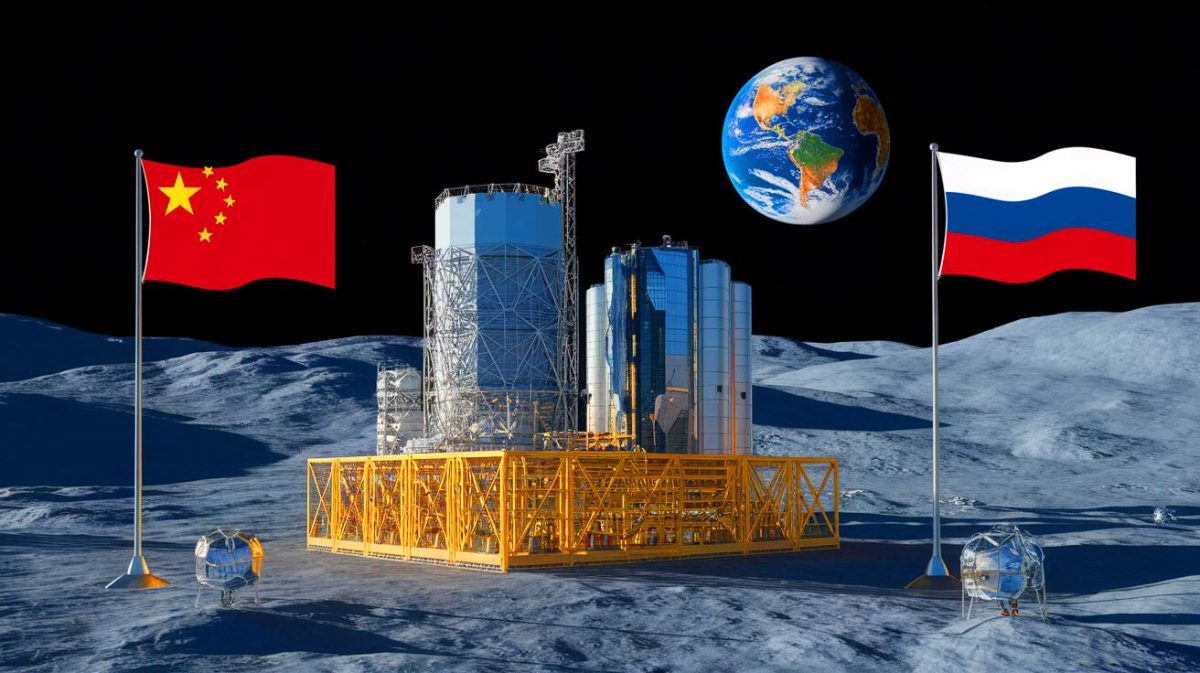| IN A NUTSHELL |
|
The recent announcement of a collaborative effort between China and Russia to construct a nuclear reactor on the Moon marks a significant advancement in space exploration. This initiative aims to power a permanent base at the Moon’s south pole by 2035. As the world turns its eyes to the skies, the implications of such a project reach far beyond scientific achievement, impacting global geopolitics and technological innovation. The ambitious timeline set by China and Russia underscores the urgent need for sustainable energy solutions in space exploration and positions them as key players in the new space race.
China and Russia’s Bold Lunar Ambitions
China’s plan to build a nuclear power plant on the Moon, in collaboration with Russia, highlights their growing influence in space exploration. This endeavor, spearheaded by Pei Zhaoyu, chief engineer of the Chang’e-8 mission, aims to power the International Lunar Research Station (ILRS). The Chang’e-8 mission, scheduled for launch in 2028, is a cornerstone of China’s space ambitions, paving the way for a permanently staffed lunar base by 2030.
The ILRS will require a reliable energy source to withstand the Moon’s harsh environment. Nuclear power emerges as a strong contender due to its long-term sustainability. Russia’s expertise in space-based nuclear technology is a critical asset, given its history of success in deploying nuclear power plants in space. Although China has not officially confirmed its commitment to the reactor, Pei’s presentation to officials from 17 countries suggests strong backing from Beijing.
NASA’s Artemis Program Sparks Competition
As China and Russia advance their lunar ambitions, the United States is reviving its lunar exploration efforts through NASA’s Artemis program. With plans to land two astronauts on the Moon by 2027 and build a sustainable base, NASA is exploring various energy solutions, including large solar arrays and nuclear power. This program reflects America’s determination to reclaim its leadership in space, having not returned to the Moon since 1972.
China and Russia’s timeline for developing the ILRS aligns closely with NASA’s plans. Wu Weiren, chief designer of China’s lunar exploration program, stated that a basic model of the ILRS would be completed by 2035. The “555 Project” further exemplifies China’s commitment to international collaboration, inviting participation from 50 countries, 500 scientific institutions, and 5,000 researchers worldwide.
A New Era of Space Resources and Nuclear Innovation
China’s rapid ascent in the space arena over the past two decades is remarkable. From launching its first astronaut in 2003 to landing a rover on Mars, China is now poised to build a nuclear power plant on the Moon. This move could redefine space exploration, enabling large-scale operations like energy generation and cargo transport.
The Moon’s natural resources are a significant motivator for establishing a presence there. It holds valuable metal oxides, silicon, titanium, rare Earth metals, and aluminum deposits. The potential of helium-3, a rare isotope, adds to the allure, with Chinese scientists suggesting it could meet global energy demands for thousands of years. Such resources could revolutionize energy production on Earth and beyond.
Implications for Global Geopolitics
The collaboration between China and Russia on the lunar reactor project has far-reaching geopolitical implications. As these nations strengthen their ties in space, questions arise about the balance of power in international space exploration. The lunar base project could potentially lead to the creation of new alliances and partnerships, reshaping the landscape of global geopolitics.
Moreover, the competition for lunar resources and technological supremacy is likely to intensify. The United States and its allies will need to reconsider their strategies to maintain influence in space. This development could lead to increased investments in space technology and a renewed focus on international cooperation to avoid conflicts over lunar resources.
As China and Russia embark on this ambitious journey to build a nuclear reactor on the Moon, the world watches with bated breath. Their efforts could redefine the future of space exploration and energy production. With the potential for new alliances and partnerships, how will these developments shape the future of international collaboration in space exploration?
Did you like it? 4.5/5 (29)









Wow, China and Russia are really reaching for the stars! 🚀
Is nuclear power on the Moon even safe? 🤔
China and Russia working together in space… what’s next?
Will this lead to space militarization? 😟
Does anyone else think this sounds like a sci-fi movie plot?
Hope they have a backup plan if something goes wrong.
Nuclear power on the Moon? Really? 🧐
Why aren’t more countries involved in this project?
The Moon has resources? I had no idea! 🌕
Can someone explain helium-3? Sounds like future tech!
Intersting read! But is this all really feasible?
Why didn’t they include the EU in this project?
How will this affect Earth’s geopolitics?
Thanks for the detailed analysis! 👏
Why hasn’t the US done this already with all their tech?
Building a reactor on the Moon sounds risky. 😬
Can they really finish this by 2035? Seems ambitious.
2035 is just around the corner! Can’t wait! 🚀
Hope they don’t start mining the Moon next! 😱
How will they transport all the materials there?
Another step towards a Star Trek future! 🖖
Are there international laws governing Moon activities?
It’s amazing how far space exploration has come!
What happens if there’s an accident with the reactor?
Thnks for keeping us updated on space news!
Does this mean more jobs in space technology?
So much competition in space lately, it’s thrilling!
How are they planning to manage the Moon’s resources?
Shouldn’t we focus on saving Earth first? 🤷♂️
Why aren’t more people talking about this?
Is this the beginning of a new space alliance?
Thank you for the informative article! 👍
The Moon’s going to be crowded soon! 😂
As if that is going to happen. Both countries are spiraling down into economic chaos.
What are the environmental implications of this project?
Seems like a new space race is heating up! Exciting times!
How will this affect the Artemis program?
Great article! The future of space is fascinating. 🌌
2035? I hope I’m still around to see this! 😅
Star wars could be approaching in the future. Even though the united states will take the lead, China and Russia could be the dark super power empires for the next Mellenioun to come.
But the united states will become the blue heavens powerful guards of the outer space to protect the universe againts the dark sides of those dark powers of Russia and China and some allies like some Arabic countries.
India could be a second angel guardians in the outer space for the United states to protect the universe.
In God we trust.
I didn’t think the Artemis program was serious. Where is the funding?
This all sounds like throwing spaghetti 🍝 against the wall to see if it’ll stick.
Is that where they will torture uyghurs and harvest organs?
The new Space Race has got real. Time for the EPA to stop holding back SpaceX with the onerous regulations.